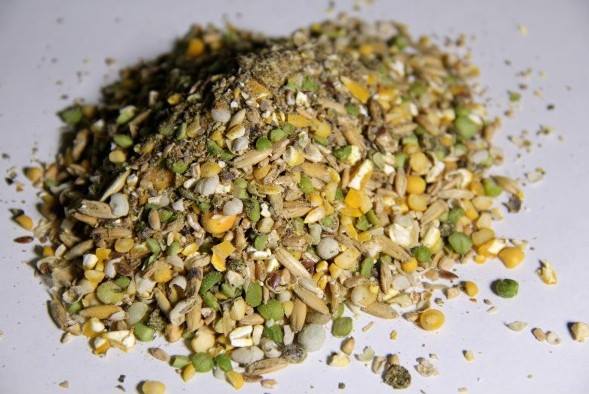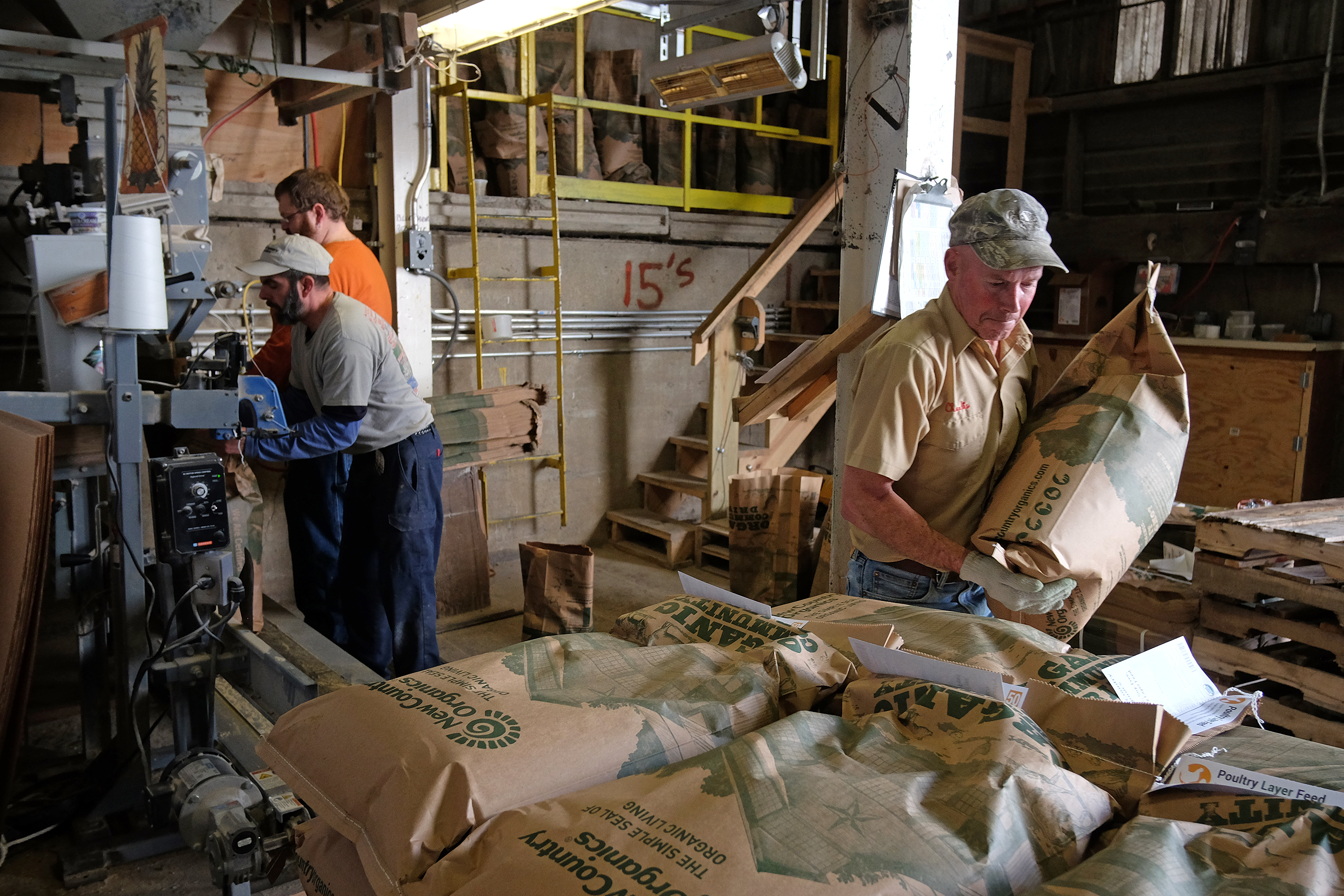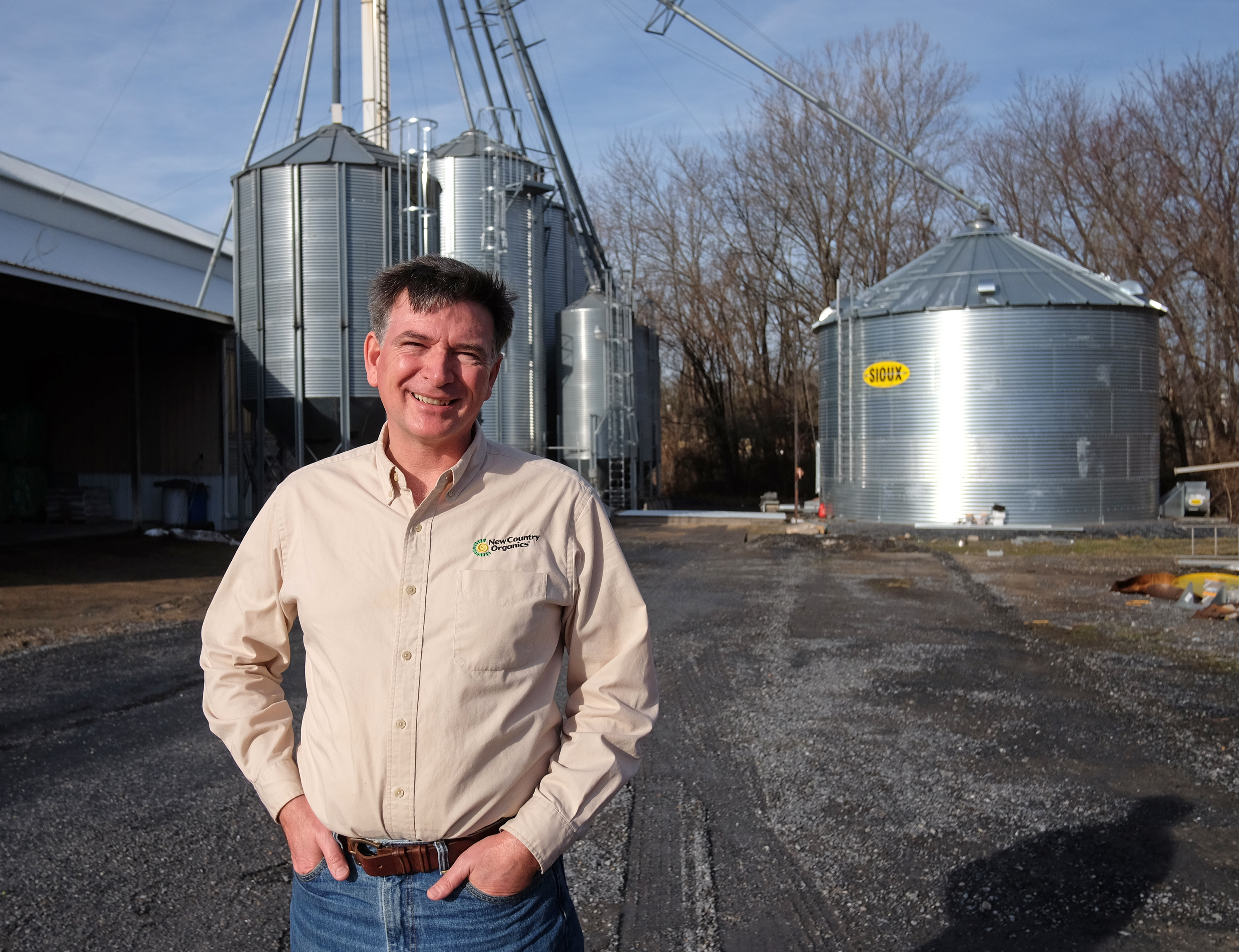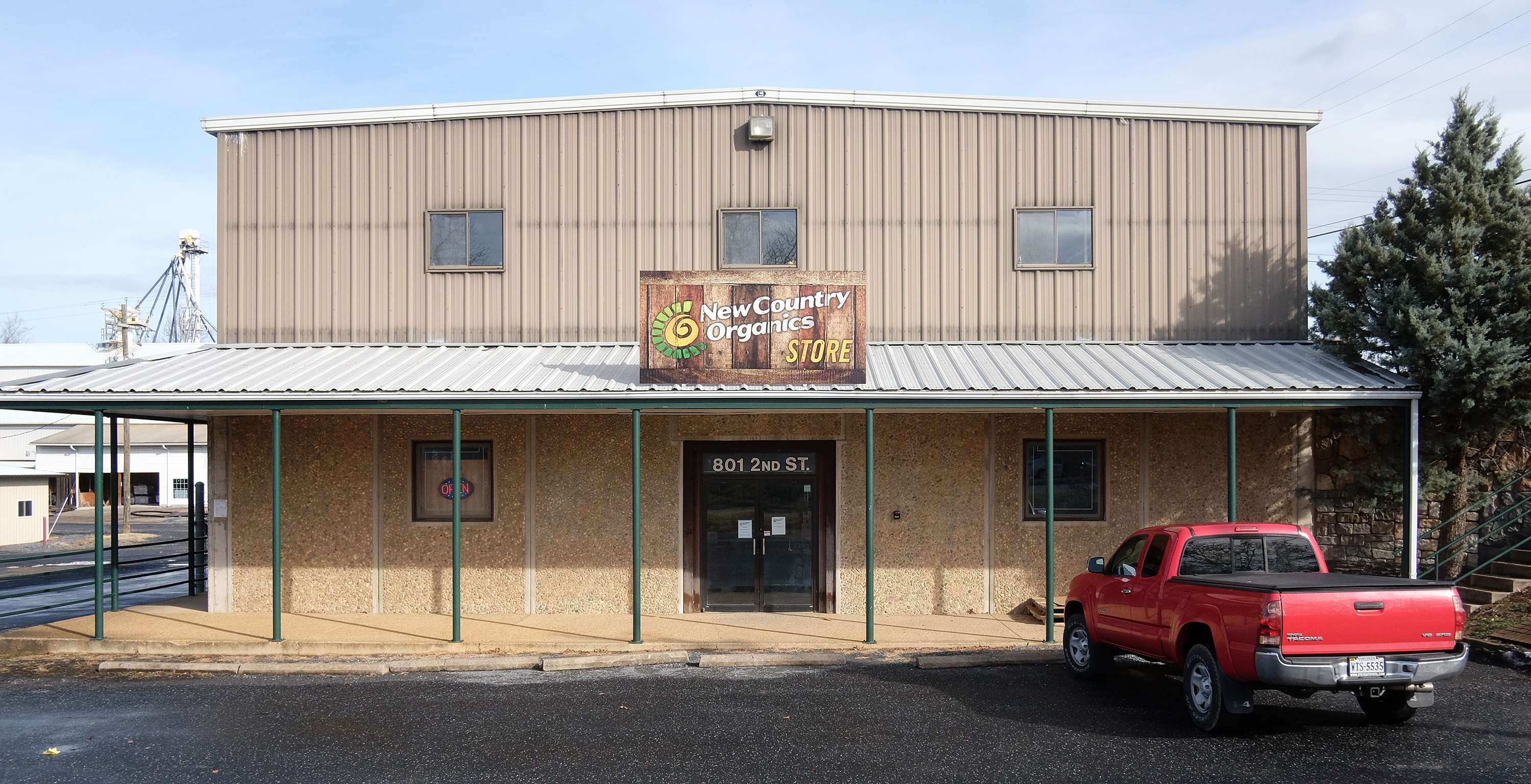Difference Made Obvious

Soy-free whole grain feed. Photo courtesy New Country Organics.
New Country Organics has a fast-track approach for sharing their business mission. In my one hand, they place a bag of a competitor’s organic, animal feed product. A uniform grind of grains and unnamed ingredients, it is a pelletized collection of nutrients and looks like every bag of chicken feed I have ever purchased.
In my other hand, they place a bag of New Country Organics feed. I can see the green curves of organic field peas and the easily recognizable heads of whole oats, wheat, and cracked corn. If in the first instance I held the equivalent of frosted flakes, I know that I am now looking at a lovingly combined collection of whole grain granola. Jim Campbell, co-owner of New Country Organics, tells me “We buy our grains as locally as possible, and we keep them whole. We add kelp and probiotics.” He chuckles and adds, “You could eat it for breakfast with yogurt.”
New Country Organics believes that, until now, animal feed has suffered from the same industrial logic as much of the country’s food chain: low cost formulas, fillers, and waste products. “We are at the cusp of a revolution in animal food that mirrors the unfolding revolution in human food,” says Jim. “Health scares among many have resulted in a determination to reclaim our food chain.” Ensuring that animals have access to healthy, whole, and organic feed is the first link in that chain.
The Organic Manifesto
Jim and the team that collectively owns New Country Organics are clear in their mission. Printed boldly on their website is an invitation: “Organic doesn’t mean trendy or cool or pretentious. Organic doesn’t have to mean expensive. Organic simply means living in ecological balance. Living real life. Real life sustained by real food.”

Charlie Smith stacks freshly filled bags of layer feed in the warehouse at New Country Organics in Waynesboro. (Photo by Norm Shafer).
In a world that is increasingly complex, and in an economy controlled by ever larger, more complex corporations, New Country Organics views taking back the food chain as an exercise in local sovereignty and sustainability. Their social mission goals include creating ever more acreage in organic agriculture. Says Jim, “Part of why we buy American and as locally as possible is to create a market for the kind of growing practices that heal rather than harm.” For New Country Organics, that means helping farmers put more into the soil than they remove, building fertility and renewal over time.
Living Local in Waynesboro
Asked how he arrived in Waynesboro, Jim smiles and says “Well, there was a woman.” Love, friendship, and farming have clearly all conspired to bring three families together who now own New Country Organics as a team. While they could perhaps have headquartered anywhere, Jim is well aware of the aesthetic allure of their current location: “Barns in Basic City – is that an enigma? We are the place where barns meet basic manufacturing. Our building is a 100-year-old site, which formally made apple cider vinegar. We’re part of the cycle of creative destruction, where the new grows out of the old.”

Jim Campbell, CEO of New Country Organics in Waynesboro. (Photo by Norm Shafer).
The team’s commitment to sustainable living shines through in many of their business practices. Redeveloping and reinhabiting vacant sites in Basic City requires far lower inputs of energy and resources than developing greenfield locations. Living in the same city that they work has allowed the full team to drive less and enjoy their community more.
Their formula is clearly working. Today, they ship from Florida to New England, and as far west as Dallas. They have opened a new location in Texas to ship to the western United States. As their customer base grows, they find themselves serving a large range of farmers, from those committed to organics in the long haul to the merely curious. “We practice community-based marketing,” says Jim. “We think of our customers as our community.”
Advice for Fellow Entrepreneurs
Jim’s commitment to pursue social missions through business ventures has made him an ambitious advocate for the successes of fellow entrepreneurs. “This is how you really help a community,” he says, “By creating a business.”
His advice includes over-investing in getting the right idea for your business–being able to clearly define your mission, your market, and what makes your product compelling. “It is very difficult to go into business with a commodity,” he says. “This forces you to compete on price rather than to operate in community. Everything we do is in some way special, unique, or customized.”
He also encourages entrepreneurs to have a plan to scale. “Plan for the owner to be able to go on vacation. This requires having trust.” He notes that each stage of business development requires different skills, so entrepreneurs themselves must grow personally along each stage. “In can be very challenging,” he says. “You must know when to let go. Create community and create jobs. Watch your employees grow into their passion and into their skills. It is one of the most rewarding things that you will ever do.”

New Country Organics in Waynesboro (Photo by Norm Shafer).
To learn more about New Country Organics and their Organic Manifesto, visit them online at www.newcountryorganics.com or stop by their retail outlet, located at 801 2nd Street in Waynesboro, with business hours Monday through Saturday. Also, check back often at GrowWaynesboro.com for new profiles of the farmers, business owners, innovators, and manufacturers that are helping grow a sustainable local economy in Waynesboro.